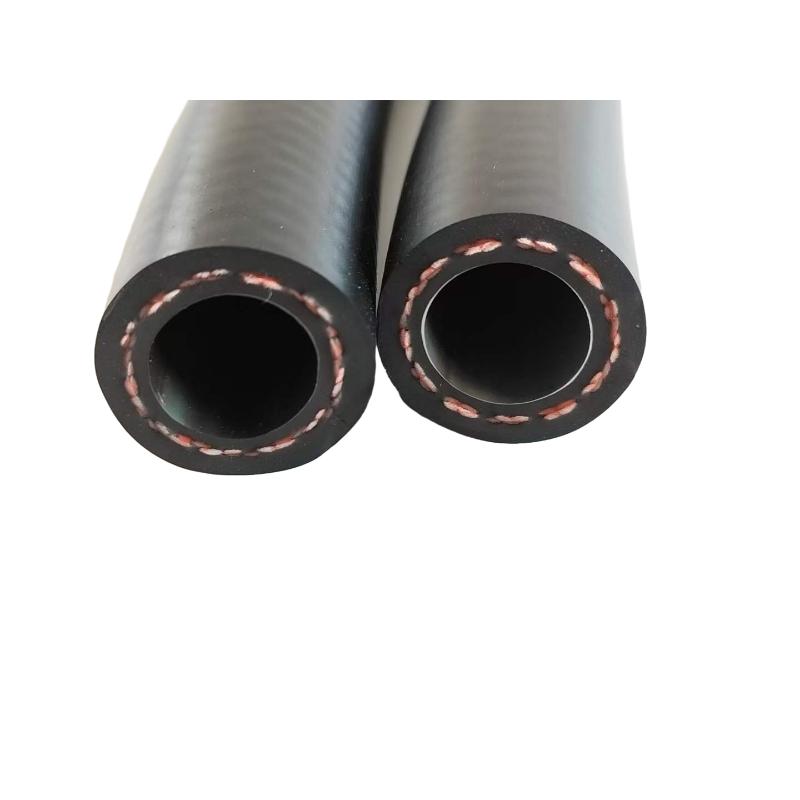Understanding the Role and Functionality of Fuel Injection Pipes in Engine Performance
जुलाई . 27, 2024 01:50 Back to list
Understanding the Role and Functionality of Fuel Injection Pipes in Engine Performance
Fuel Injection Pipes The Lifeline of Modern Engines
Fuel injection pipes play a crucial role in the efficient functioning of internal combustion engines. As modern automotive technology continues to advance, the importance of precise fuel delivery systems cannot be overstated. These pipes serve as conduits that deliver fuel from the fuel injectors directly into the combustion chamber, ensuring optimal combustion and maximizing engine performance.
Understanding Fuel Injection Systems
Fuel injection systems have largely replaced carburetors in modern vehicles due to their efficiency, performance, and ability to meet stringent emissions standards. The fuel injection pipe is a vital component in this system, responsible for transporting pressurized fuel from the fuel rail to the injectors. The design and material of these pipes significantly impact the overall performance and reliability of the engine.
Design and Materials
Fuel injection pipes are typically made from high-strength materials, such as stainless steel or high-pressure composites. This is necessary to withstand the extreme pressures generated within the fuel system, especially in high-performance engines. The pipes must also be resistant to corrosion and fatigue, as they are exposed to harsh fuel compositions and operating conditions.
The design of fuel injection pipes includes several considerations, such as diameter, wall thickness, and length. Optimizing these factors ensures that the fuel is delivered at the right pressure and flow rate, which is essential for maintaining engine efficiency and preventing issues like fuel knock or misfires.
The Role of Fuel Injection Pipes in Performance
fuel injection pipe

The performance of an engine is heavily influenced by the fuel injection system, and by extension, the fuel injection pipes. A well-designed fuel pipe helps achieve a precise atomization of fuel, which is critical for effective combustion. When the fuel is injected into the combustion chamber in a fine mist, it mixes more evenly with air, leading to more efficient combustion. This results in better power output, reduced fuel consumption, and lower emissions.
Moreover, fuel injection pipes must be calibrated to work seamlessly with the engine control unit (ECU), which regulates fuel delivery based on various factors such as throttle position, engine temperature, and load conditions. This integration allows for dynamic adjustments in fuel supply, further enhancing engine responsiveness and performance.
Maintenance and Challenges
Despite their robust design, fuel injection pipes can encounter issues over time. Clogs, leaks, or corrosion can compromise fuel delivery, leading to decreased engine performance or even failure to start. Regular maintenance checks, including inspecting the fuel lines and replacing any worn components, are essential to ensure longevity and optimal performance.
Additionally, advancements in technology, such as direct fuel injection (DFI), present new challenges for fuel injection pipes. DFI requires precision-engineered components that can handle higher pressures and different fuel types, making the design and manufacturing process more complex. As vehicles transition towards alternative fuels and hybrid systems, fuel injection technologies must continue to evolve to meet these new demands.
Conclusion
In conclusion, fuel injection pipes are a fundamental element of modern fuel injection systems, playing a pivotal role in the performance and efficiency of internal combustion engines. Their design, material, and integration with the broader fuel delivery system are critical for ensuring optimal fuel combustion. As automotive technology advances, continuous improvements in fuel injection pipe design and materials will be necessary to meet the challenges posed by modern engines and alternative fuel sources. Proper maintenance and periodic assessments will help maximize the life and performance of these vital components, ensuring that they continue to serve as the lifeline of our vehicles.
Latest news
-
Durable Car Heater Hose | Quality Automotive Preheater Pipes
NewsAug.24,2025
-
Durable Air Brake Hose & Air Lines for Trucks | Safety Ensured
NewsAug.23,2025
-
Air Conditioning Charging Hose: Durable AC Recharge Kits
NewsAug.22,2025
-
Premium 4890 AC Hose | Durable & Perfect Fit Replacement
NewsAug.21,2025
-
High-Quality AC Hose: Compressor to Evaporator for Car
NewsAug.19,2025
-
Glass Storage Jar with Acacia Vacuum Vented Cover - HEBEI KEMO|Thermal Resistance, Food-Grade Safety, Eco-Friendly
NewsAug.18,2025
